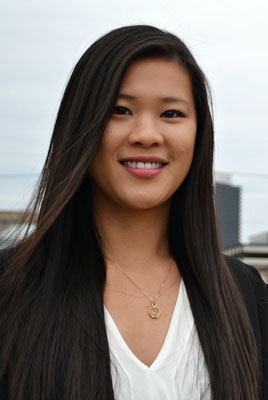Current Students
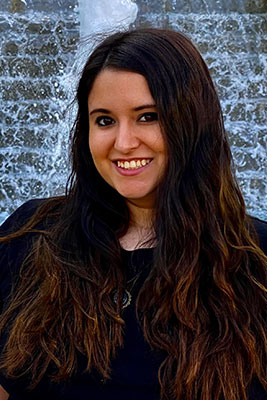
Abigail Anderson
2021

Samina Irshad Ansari
2022

Deborah Awusuah Dadson
2022

Henrietta Armah Bennett
2020
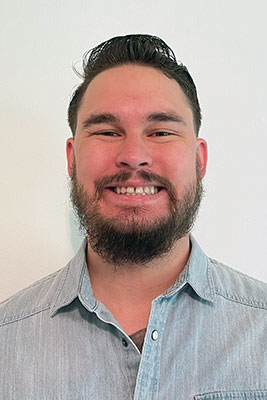
Jeremy Delgadillo
2021
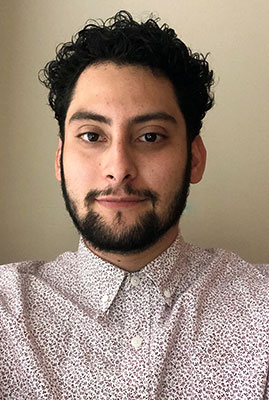
Carlos Espinoza
2020

Maizonne Fields, LMSW
2021

Marlon Goering
2019
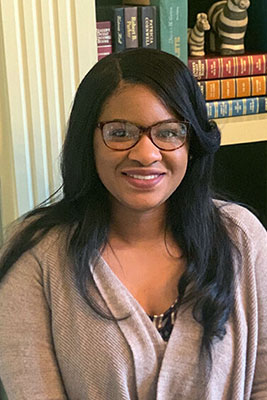
Shirlacia "Lacy" Gray
2021

Hunter Hathorn
2023

Destiny Kelly
2021

Shannon Kirshy
2023

Alecia Mercier
2020

Amanda Moore
2022

Mubarick Saeed
2022

Brianna (Bri) Stein
2020

Yixin Wang
2020

Makayla Warnecke
2022
Recent Dissertations
- Jonathan Adams: Predictors of Carrying Weapons to School Among Adolescents. Chair: Dr. Mrug
- Ghislaine Atkins: A Stress Process Approach to Assessing Caregiver Burden, Depressive Symptoms and Quality of Life: The Role of Attachment in Adult Relationships. Chair: Dr. Clay
- Tyler Bell: Driving Through the Fog: The Impact of Traumatic Brain Injury on Mental Fog and Driving Performance. Chair: Dr. Stavrinos
- Haley Bishop: Comparing Simulated Driving Performance of Drivers and Pre-drivers with Autism Spectrum Disorder. Chair: Dr. Stavrinos
- Logan Boe: Parents’ Personal Characteristics in Explaining Perceptions of Infant Temperament. Chair: Dr. Rodriguez
- Wesley Browning: Examining Interpersonal Differences among Caregivers in Health Outcomes Using a Stress Process Model: The Influence of Adverse Social Experiences and Social Support. Chair: Dr. Clay
- Benjamin Burgess: Cognitive Factors and Treatment Adherence in Individuals with Cystic Fibrosis. Chair: Dr. Mrug
- Christian Clesi: Investigating the efficacy and parental impact of a novel community education workshop for caregivers of individuals with Autism Spectrum Disorder. Chair: Dr. Biasini
- Emma Sartin: The Influence of Child, Parent, and Context Factors on Children's Traffic Injury Risk. Co-Chairs: Dr. Stavrinos & Dr. J. Mirman
- Omar Maximo: Cortico-Subcortical Functional Connectivity of Autism Spectrum Disorders. Chair: Dr. Kana
- Benjamin McManus: The Effect of Occupational Demands on Driving Safety in Surgical Residents. Chair: Dr. Stavrinos
- Catheryn Orihuela: Neighborhood Disorder and Risky Sexual Behaviors in Adolescents. Chair: Dr. Mrug
- Caitlin Pope: Cognitive Correlates of Driving Behavior in Older Adults with HIV. Chair: Dr. Stavrinos
- Eva Trinh: Effects of a Social Skills Focused Cooking Class on Social Skills, Adaptive Behavior, and Eating Behavior in an After-School Social Awareness Program. Chair: Dr. Biasini
- Danielle Vincent: The Effect of Retouched Magazine Images on Body Dissatisfaction. Chair: Dr. Biasini
- Shannon Wittig: Relationship Between Parenting Styles, Parenting Behaviors, and Children's Socioemotional Development: A Longitudinal Study. Chair: Dr. Rodriguez
Admissions
Students are admitted only to begin in the fall semester, for full-time study, and for completion of the doctoral degree (a Master’s degree is typically earned along the way).
How to Apply
Applications to our program and all related materials – including transcripts, letters of recommendation, and scores – must be submitted through the UAB Graduate School by December 15. The online application portal can be accessed via the main Graduate School website or the application portal. Please indicate that you are applying for the Applied Developmental Psychology PhD program.
There is an application fee of $60 for U.S. applicants (including green card holders) and $60 for international applicants.
Applicants should submit the following materials in addition to the application form:
- A personal statement that describes the research area that you would like to pursue at UAB and identifies at least one member of our faculty with whom you would be interested in working on research. The concentration's faculty page indicates which faculty members are recruiting students for the upcoming academic year.
- Three letters of recommendation from individuals who are familiar with your academic and research relevant background and interests. These letters should be requested and submitted electronically via the application portal.
- A curriculum vitae that includes your educational background, relevant research and teaching experience, and any research publications or presentations.
- For Fall 2025 entry, the GRE is not required.
- An official transcript from each academic institution where college credit – undergraduate as well as graduate if applicable – was received. Transcripts may be mailed to UAB Graduate School, LHL G03, 1720 2nd Avenue South, Birmingham AL 35294-0013, or emailed to
This email address is being protected from spambots. You need JavaScript enabled to view it. .
Application Review Process
Interviews for Fall 2025 entry will be held in February or early March 2025.
The Admissions Committee reviews all applications to identify applicants who are invited for virtual interviews to occur in January or February.
The committee considers the following factors in selecting individuals to interview:
- Overall academic credentials, including grade point average (GPA) and courses completed.
- Academic background relevant to psychology and other life sciences, statistics, and mathematics, as well as grades received in these courses.
- Research experience in psychology or related fields.
- Research interests and career goals that align with faculty interests and program goals.
We only interview students who have interests and career goals that appear to be a good fit for our program. Most interviewed applicants have research experience, although we also consider the availability of such experiences at the applicants’ undergraduate institution. Other requirements are evaluated as a whole, meaning that there are no firm requirements for test scores, GPA, credit hours in psychology, etc.
At the interview, applicants have the opportunity to discuss their background, experience, interests, and career goals in more detail with program faculty and to learn more about the program from both faculty and current students. In general, our criteria for offering admission are the same as those we use to select applicants to invite to interview. Initial offers of admission are typically extended within two weeks of the interview and continue until the incoming class is filled.
To help ensure the safety of patients and research participants, admitted students will be required to undergo a criminal background check. The program evaluates any findings from this process on a case-by-case basis. Applicants with concerns about what such a background check might reveal are encouraged to discuss those concerns with the program director prior to accepting the interview offer.
Financial Support
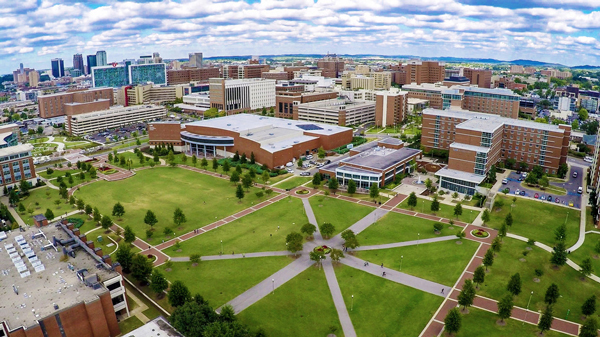 The PhD program with a concentration in Applied Developmental Psychology seeks to attract doctoral students who show exceptional promise in research and scholarship. The admission process is highly competitive. All successful applicants are guaranteed at least five years of support, which includes an annual stipend of $30,000 as well as full coverage of tuition, lab fees, and health insurance.
The PhD program with a concentration in Applied Developmental Psychology seeks to attract doctoral students who show exceptional promise in research and scholarship. The admission process is highly competitive. All successful applicants are guaranteed at least five years of support, which includes an annual stipend of $30,000 as well as full coverage of tuition, lab fees, and health insurance.
First-year students are supported either by:
- Blazer Fellowships that do not have a service requirement and therefore allow full-time effort to be devoted to graduate coursework and research
- Departmental Teaching Assistantships
- Graduate Research Assistantships
After the first year, students are supported through a variety of funding mechanisms, including:
- Research assistantships, typically funded by the research mentor’s grants.
- Applied assistantships, typically funded by a community agency (e.g., Glenwood Autism and Behavioral Health Center)
- Training grants obtained by groups of researchers who obtain funds specifically to support student training.
- Individual training grants for which you can apply with the assistance of your mentor. These grants are available from federal agencies and private foundations.
- Teaching assistantships that can involve both assisting faculty in teaching classes and teaching undergraduate courses under faculty supervision.
Graduate Student Scholarship
The Department of Psychology encourages its graduate students to attend scientific conferences to present their research and learn about recent developments in their respective fields of study. It supports this activity through tuition and research scholarships of up to $750. Graduate students who are the first author of a poster or presentation are eligible to apply for a $750 scholarship, and students who are co-authors can apply for up to $300. Scholarships are limited to one award for the academic year (Fall, Spring, and the subsequent Summer term). Scholarship requests for non-presenters or other training will be considered on a case-by-case basis but require justification from the Program Director.
Core Program Faculty
Listed below are faculty who mentor Developmental Psychology students in their research. This list is representative but not exhaustive.
Individuals marked with an asterisk (*) are affiliated faculty members with primary appointments in other departments. They are closely involved with the program and can serve as primary research mentors.
Careers and Alumni Outcomes
Our program graduated its first Ph.D. in 1995. Our graduates are competitive in the job market and secure positions in top academic institutions, as well as with government agencies and non-profit organizations. Below, are alumni outcomes for some of our graduates:
Alumni Spotlights

Jonathan Adams
PhD, Developmental Psychology concentration, 2019
Career: National Study Coordinator and Research Health Science Specialist, Seattle Epidemiological Research and Information Center, U.S. Department of Veterans Affairs | Adjunct Instructor (Remote), International Partnership of Education Research and Communication
Ann Alriksson-Schmidt
PhD, Developmental Psychology concentration, 2007
Career: Associate Professor, Lund University, Sweden
Tyler Bell
PhD, Developmental Psychology concentration, 2018
Career: Postdoctoral Fellow, Penn State University
Benjamin Barton
PhD, Developmental Psychology concentration, 2005
Career: Professor and Chair, University of Idaho
Haley Bishop
PhD, Developmental Psychology concentration, 2017
Career: Associate Fellow, Center for Injury Research and Prevention at Children's Hospital of Philadelphia
Ellen Cotter
PhD, Developmental Psychology concentration, 1999
Career: Professor, Georgia Southwestern State University
Stephanie DeLuca
PhD, Developmental Psychology concentration, 2002
Career: Associate Professor, Virginia Tech
Lisa A. Grupe
PhD, Developmental Psychology concentration, 2001
Career: Consultant, Waldorf/Steiner schools
Kristi Carter Guest
PhD, Developmental Psychology concentration, 1999
Career: Associate Professor, UAB
Jinhong Guo
PhD, Developmental Psychology concentration, 2016
Career: Biostatistician II, LLX Solutions LLC
Cynthia Hall
PhD, Developmental Psychology concentration, 2011
Career: Associate Professor of Psychology, West Virginia University – Institute of Technology
Meredith Henry
PhD, Developmental Psychology concentration, 2016
Career: Lecturer, Georgia State University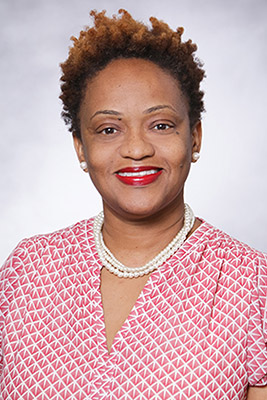
Rhonda Conerly Holliday
PhD, Developmental Psychology concentration, 1998
Career: Associate Professor, Morehouse School of Medicine
Bridge Hill Kennedy
PhD, Developmental Psychology concentration, 2011
Career: Associate Professor, UAB
Sarah Leger
PhD, Developmental Psychology concentration, 2015
Career: Director of Residence Life, University of Colorado Denver
Lauren Libero
PhD, Developmental Psychology concentration, 2014
Career: Autism Program Specialist, State of California, Department of Developmental Services
Jose O. Maximo
PhD, Developmental Psychology concentration, 2018
Career: Scientist, UAB Department of Psychiatry and Behavioral Neurobiology
Benjamin McManus
PhD, Developmental Psychology concentration, 2018
Career: Postdoctoral Fellow, UAB Department of Psychology
Anjana Madan Morris
PhD, Developmental Psychology concentration, 2013
Career: Academic Editor, Research Square
William Neumeier
PhD, Developmental Psychology concentration, 2016
Career: Headquarters and Headquarters Detachment Commander, US Army, USARIEM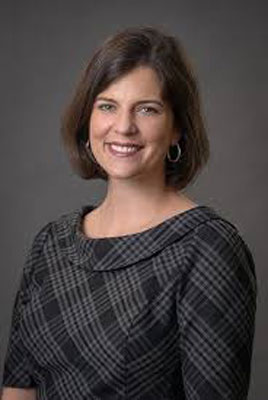
Kameron Partridge
PhD, Developmental Psychology concentration, 2007
Career: CEO, Glasser/Schoenbaum Human Services Center
Caitlin Pope
PhD, Developmental Psychology concentration, 2017
Career: Assistant Professor, University of Kentucky College of Public Health
Lesley Ross
PhD, Developmental Psychology concentration, 2007
Career: SmartLife Endowed Chair of Aging and Cognition, Associate Professor of Psychology, and the Director of the Institute for Engaged Aging at Clemson University
Emma Sartin
PhD, Developmental Psychology concentration, 2019
Career: Postdoctoral Fellow, Children’s Hospital of Philadelphia Center for Injury Research and Prevention
Jiabin Shen
PhD, Developmental Psychology concentration, 2015
Career: Assistant Professor, University of Massachusetts Lowell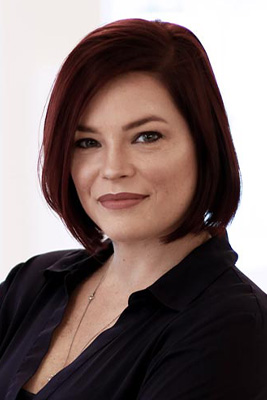
Lindsay Sutton
PhD, Developmental Psychology concentration, 2013
Career: Lead Behavioral Designer & Business Strategist, Two Ravens | Lead Performance Strategist & Master Facilitator, Advancing the Science of Social Creativity- Hidden Innovators | Master Trainer & Facilitator, Human at Work
David E. Vance
PhD, Developmental Psychology concentration, 2000
Career: Professor and Associate Dean, UAB School of Nursing
Martinique Perkins Waters
PhD, Developmental Psychology concentration, 2010
Career: Assistant Professor, University of West Alabama
Pariya Fazeli Wheeler
PhD, Developmental Psychology concentration, 2012
Career: Associate Professor of Nursing, UAB
Shannon Wittig
PhD, Developmental Psychology concentration, 2018
Career: Assistant Professor, Henderson State UniversityCurriculum
Developmental Psychology (21 hours)
- PY 708: Developmental Psychology
- PY 729: Seminar in Adolescent Development
- PY 785: Psychology of Aging
- GRD 717: Principles of Research Ethics
In addition, choose three courses from:
Research Design and Statistics (15 hours)
- PY 716: Introduction to Statistics and Measurement
- PY 716L: Lab for Introduction to Statistics and Measurement in Catalog
- PY 717: Applied Statistical Methods
- PY 717L: Lab for Statistical Methods
- PY 719: Multivariate Statistical Methods
- PY 719L: Lab for Multivariate Statistical Methods
In addition, choose one from:
- PY 718: Research Design
- PY 727: Longitudinal Data Analysis Laboratory
- BST 795: Advanced Special Topics in Biostatistics
General Psychology and Related Disciplines (9 hours)
In addition, choose two from:
- PY 702: History and Systems of Psychology
- PY 704: Social Psychology
- PY 706: Sensory and Perceptual Processes
- PY 707: Cognition
- PY 720: Human Neuropsychology
- PY 731: Health Psychology I
- PY 740: Adult Personality and Psychopathology
- PY 742: Sport Psychology
- PY 743: Methods in Neuroimaging
- PY 791: Special Topics in Psychology
Teaching (6 hours)
- PY 796: Practicum (Teaching Assistant)
- PY 796: Practicum (Teacher)
Research (at least 30 hours)
Note: Please double check the ![]() most recent student handbook in order to make sure the correct research hours are taken.
most recent student handbook in order to make sure the correct research hours are taken.
- PY 698: Premaster's Degree Graduate Research
- PY 699: Master's Level Thesis Research (must be admitted to candidacy before registering for hours)
- PY 798: Predoctoral Degree Graduate Research
- PY 799: Doctoral Dissertation Research (must be admitted to candidacy before registering for hours)
NOTE: Other courses may apply with written permission of the program director. However, a copy of the written permission must be sent to
Overview
The Applied Developmental Psychology PhD program is a research-training program. All components of the program are geared towards advancing your ability to conduct research. Training in our program exposes our students to issues of development in their natural social contexts — in the school, home, workplace, etc. — as well as in laboratories. Graduate students study developmental aspects of behavioral systems, family systems, and individual capabilities and competencies throughout development.
The program is designed to be completed in four to five years of full-time studies. We only admit students who can commit to full-time studies throughout the duration of the program.
Faculty Mentor
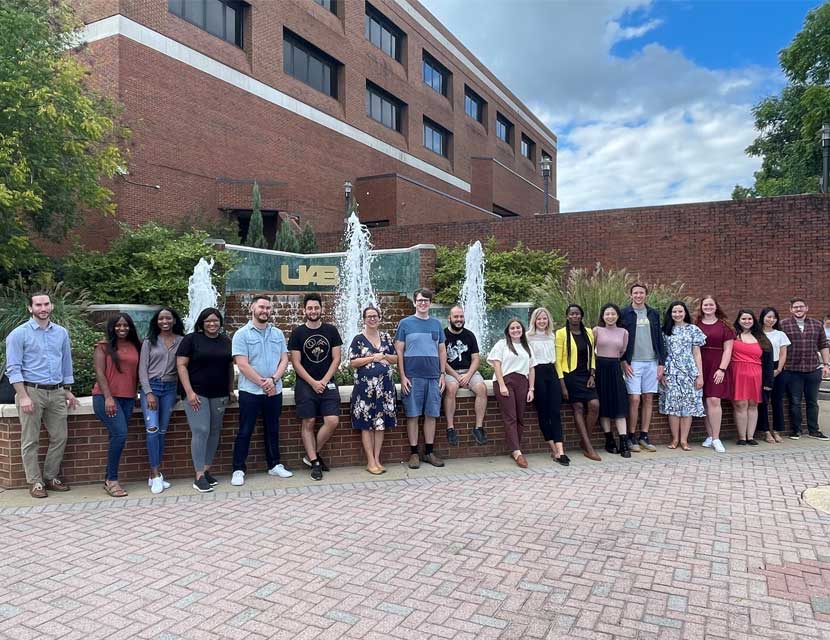 A critical feature in our training program is that each student has a faculty mentor. This mentor is responsible for guiding you through the program and teaching you how to function as a developmental scientist. You will develop a systematic line of research in collaboration with your mentor, and in the process complete the Ph.D. research requirements. Students are actively engaged in research every semester, including summers.
A critical feature in our training program is that each student has a faculty mentor. This mentor is responsible for guiding you through the program and teaching you how to function as a developmental scientist. You will develop a systematic line of research in collaboration with your mentor, and in the process complete the Ph.D. research requirements. Students are actively engaged in research every semester, including summers.
The faculty mentor/doctoral student relationship is formed by mutual consent, usually upon admission to the program. This relationship may continue throughout the training program, though some students change mentors or add a co-mentor at some point in their studies.
Because of the importance of this relationship, it is crucial that you identify a faculty member whose research is of significant interest to you when you apply to our program. Consult our faculty profiles and our research section for more information about current research.
Major Concentration Requirements
Students enter the program with either a Bachelor's or Master's degree. If you do not hold a Master's degree, you will complete a thesis research project (to be submitted for publication) during the first or second years of the program. You will then complete the qualifying exam/admission in the form of a written literature review to candidacy for the Ph.D. degree.
The final requirement is a completion of a doctoral dissertation — an independent, substantial scientific contribution to knowledge in a specific area of inquiry.
While most students will complete two required research projects (thesis and dissertation), you are expected to be continuously involved in research in collaboration with your mentor and complete projects that can be published.
Course Curriculum
Our students complete a core curriculum in addition to the theses, dissertation, and research requirements. Through courses in developmental psychology, statistics, research design, and general psychology, you will develop a solid foundation in the history, methods, theory, and current research in developmental psychology.
Since the advancement of developmental psychology as a science and as a long-term solution to applied developmental problems requires contributions from a variety of disciplines, training occurs in an interdisciplinary context, and students often complete coursework in other departments (e.g., education, public health).
Applied Developmental Psychology PhD

If you enjoyed the research process as an undergraduate and have a strong interest in human development—and want to see how research can be applied in real-world settings—then it is time to think about a career in Applied Developmental Psychology.
An advanced degree (Ph.D.) will bring you one step closer to pursuing a career that fulfills your desire to help others. Our graduate program trains students to conduct rigorous research to discover basic principles of psychological development. Located at the University of Alabama at Birmingham, a nationally ranked academic medical center and R1 research institution, we offer our students a unique platform to pursue their ideas. We also offer graduate students a competitive package up to five years that includes an annual stipend of $30,000. Our application deadline is December 1 of each year for admission the following Fall semester.
Our graduates are competitive in the job market and secure positions in top academic institutions, as well as with government agencies and non-profit organizations.
Overview
The Applied Developmental Psychology PhD program is an applied research-training program. All components of the program are geared towards advancing your ability to conduct research. Training in our program exposes our students to issues of development in their natural social contexts — in the school, home, workplace, etc. — as well as in laboratories. Graduate students study developmental aspects of behavioral systems, family systems, and individual capabilities and competencies throughout development and across the lifespan.
Faculty
Our department culture emphasizes collaboration. Our internationally recognized faculty—whose work have led to policy changes, new research tools, and scientific breakthroughs—are committed to growing and establishing new areas of research, giving our students the opportunity to work in a challenging and exciting environment. They are also dedicated to excellence in teaching and strong, supportive mentorship of students.
Your faculty mentor will be responsible for guiding you through the program and teaching you how to function as a developmental scientist. You will develop a systematic line of research in collaboration with your mentor, and in the process complete the Ph.D. research requirements.
Because of the importance of this relationship, it is crucial that you identify a faculty member whose research is of significant interest to you when you apply to our program. Consult our faculty profiles for more information about current research.
Research Training Areas
Child and Adolescent Development
Research examples: Cognitive development, technology and behavior, autism spectrum disorders, intellectual and developmental disabilities, socio-emotional development, pediatric psychology, prevention/intervention, developmental psychopathology, injury prevention, youth violence, parent and peer influences, developmental disabilities, child and adolescent health, health disparities, neighborhood effects.
Applied training examples: Alabama Department of Rehabilitation Services, Traumatic Brain Injury Program, Autism Society of Alabama, Civitan International Research Center, UAB Civitan-Sparks Clinics, UAB Early Head Start Program, UAB Regional Autism Network, Collaborations with the UAB Schools of Medicine, Education, and Public Health, K-12 Schools
Aging
Research examples: Alzheimer’s Disease, applied cognition, successful aging, HIV, pain, health disparities, bio-psycho-social pathways, caregiver support
Applied training examples: Alzheimer’s Disease Center, Center for Research on Applied Gerontology, Comprehensive Center for Healthy Aging, Deep South Resource Center for Minority Aging Research
Questions?
Please explore our website to see what the Applied Developmental Psychology program has to offer. If you have specific questions, contact the director or the graduate programs manager.

Olivio Clay
Professor
Director, Applied Developmental Psychology Program
Email:

Terri M. Roberson
Graduate Programs Manager
Phone: (205) 934-8723
Email:

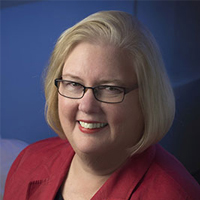 Karlene Ball
Karlene Ball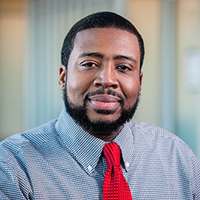 Olivio Clay, Director
Olivio Clay, Director  Michael Crowe
Michael Crowe Cynthia Owsley*
Cynthia Owsley*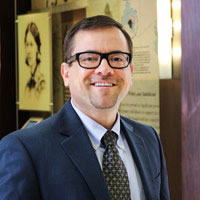 David E. Vance*
David E. Vance*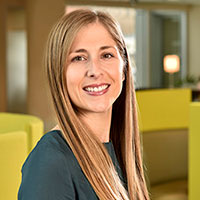 Pariya Fazeli Wheeler*
Pariya Fazeli Wheeler*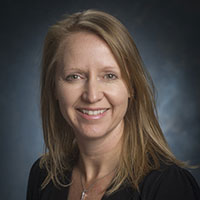 Paula Chandler-Laney*
Paula Chandler-Laney* Gareth Dutton*
Gareth Dutton*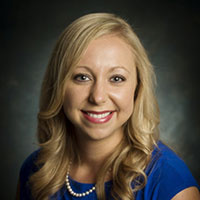 Aaron Fobian*
Aaron Fobian* Kristi Guest
Kristi Guest  Christopher Henrich
Christopher Henrich  Maria Hopkins
Maria Hopkins Robin Gaines Lanzi*
Robin Gaines Lanzi*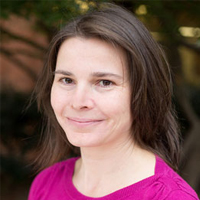 Sylvie Mrug
Sylvie Mrug  Sarah O'Kelley
Sarah O'Kelley 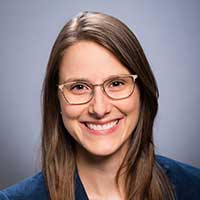 Caroline G. Richter
Caroline G. Richter  David C. Schwebel
David C. Schwebel 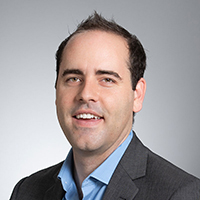 Nicholas C. Borgogna
Nicholas C. Borgogna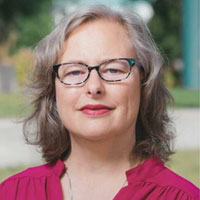 Karen Cropsey
Karen Cropsey Dori Pekmezi*
Dori Pekmezi*